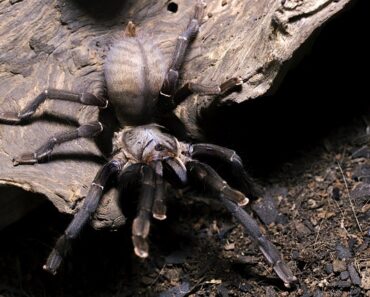
Thanks to two exclusive neurons, Drosophila females can sense if a mating should continue or if it is time to end it.
Science has long been aware of the daughters’ trap of male fruit flies: their sperm contains a substance that makes their partners temporarily indifferent to their competitors – the aim being, as one suspects, that the eggs are fertilized by their gametes and not by those of the neighbor. Except that it seems that the females are not as chemically hypnotized as they seem.
According to a study led by Ulrike Heberlein of the Howard Hughes Medical Institute, it’s also their own sexual feelings, not just the sperm, that make them appreciate or reject this or that suitor. In this way, females might know whether to continue copulating or whether they can take a break.
What scientists have discovered is that if a female vinegar fly gets laid for a period of time, two sex-specific neurons (males have none) are activated to send the message “stop” from her abdomen to her tiny brain.
This “copulation effect,” as the research team has dubbed it, could be particularly welcome in nature, where it is not uncommon for copulation to be interrupted for a yes or no. If the female is able to detect whether she has been fertilized, then she can save her energy without affecting her genes.
Taste of the gaudriole
A funny detail of the story, this effect was discovered “a little by accident”, comments Ulrike Heberlein. She and her team were initially out hunting for neurons involved in the reward circuit, before they realized that certain cells in female flies sent really powerful messages to the brain when stimulated – and that such a circuit did not exist in males.
Hence the hypothesis of a role that is as sexual as it is gender-specific. To test it, scientists mated females with males unable to ejaculate. After a while, despite the absence of semen and its cursed substances, the females still lost the taste of the gaudriole.
When the experiment was repeated by blocking the activity of the neurons involved, the females continued their little affair as if nothing had happened.
Verdict: these cells seem to control the sexual activity of the female fly, whether or not she has received the spermatic peptides that cool her ardor.
The scientists finally noticed that the phenomenon seems to offer more latitude to the female flies: while the sexual peptides of the males take time to act and cut off their desire to go elsewhere for a good week, the copulation effect appears and disappears much faster.






